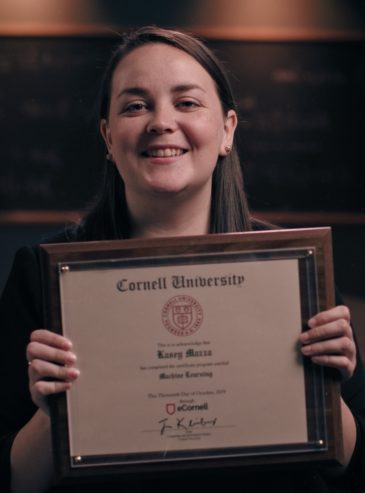Blockchain Essentials

Since the advent of the internet, programmers have been trying to figure out how to create a [digital] world in which people anywhere - even complete strangers - can transact directly with one another safely and efficiently. In essence, they have been trying to recreate the bedrock of civilization: an orderly system of bookkeeping that allows people to trust each other's claims about what they own, what they owe, and what they are owed. For most of the digital age, this “trust” has been facilitated by third parties such as banks, governments, or credible companies that are willing to guarantee that a transaction is valid and secure. But transactions via third parties are slow and expensive, and they cannot be verified by just anyone, which opens the door to fraud and theft.
Today, the notion of a secure and trusted third party in a digital world isn't purely mythical. And in fact, it's exactly what blockchain technology embodies in a kind of magical way. In this course, you will explore the mechanics of blockchain technology and how the blockchain acts like a trusted third party. To do this, Professor Ari Juels will design a theoretical cryptocurrency from scratch to illustrate how Bitcoin and other cryptocurrencies make use of the blockchain to transfer value from person to person. Then, once you understand how the blockchain acts as a trusted ledger, you will practice articulating other transformative ways in which blockchains can change how commercial and interpersonal connections happen online.
- Mar 11, 2026
- Apr 22, 2026
- Jun 3, 2026
- Jul 15, 2026
- Aug 26, 2026
- Oct 7, 2026
- Nov 18, 2026
Cryptography has been around for thousands of years and is at the heart of digital communications today. Most people rely on cryptography on a daily basis without even knowing it; most popular messaging apps use encryption to ensure the security of messaging between two people. Blockchain technology, in a similar way, relies on cryptography to protect the identity of those sending and receiving messages and ensures that all information and transactions are secure and legitimate. Thus, to really understand blockchain technology, you have to understand the core principles of cryptography.
This course will walk you through the basics of cryptography: how information has historically been disguised (encrypted) and revealed (decrypted) using mathematics. You will see how a message can be turned into a number, and how that number can be encrypted and decrypted by two complete strangers. You will practice encrypting your own message to understand the basics of what makes a good encryption scheme. Then, you will delve deeper into the specific type of cryptography used in blockchain technology -- public key cryptography - and the promises and limitations it has in carrying out the core functions of a blockchain. You will create your own theoretical gold exchange in order to more fully understand how you can send anything to anyone around the world without a middleman. Ultimately you will know exactly how information on the blockchain is secured, legitimized, and authenticated without needing a third party to verify it.
You are required to have completed the following course or have equivalent experience before taking this course:
- Cryptocurrencies and Ledgers
- Mar 25, 2026
- May 6, 2026
- Jun 17, 2026
- Jul 29, 2026
- Sep 9, 2026
- Oct 21, 2026
- Dec 2, 2026
Variations of blockchain technology have existed for decades, but the recent hype is the result of a new kind of blockchain, one that distributes the responsibility of verifying transactions and thereby making it more secure, transparent, and enduring. This course will teach you to understand the differences between the blockchain technology of today and the former, less accessible and less transparent blockchains of decades past. You will dig into the mechanics of the [newer] Bitcoin blockchain protocol and how it ensures the longevity of a decentralized public ledger as well as how it gets consensus for approving transactions. With that knowledge you will then work to analyze what problem(s) blockchain technology aims to solve, how it solves them, and how to make sense of the promises that developers of new blockchain protocols make.
You will analyze a sample protocol to determine why the protocol might not satisfy the key properties that make a “good” blockchain secure. You will be better prepared to critically analyze all the endless new cryptocurrencies that emerge and the underlying blockchain technology that they operate on. You will outline several industries and business purposes for which the blockchains of today make sense. You will solve a computational puzzle in Excel to better understand how transactions get verified in the Bitcoin blockchain protocol. In the course project, you will design a theoretical blockchain for a company, outlining advantages and disadvantages of the properties you will think the blockchain should have based on the unique aspects of your business.
You are required to have completed the following course or have equivalent experience before taking this course:
- Cryptocurrencies and Ledgers
- Cryptography Essentials
- Feb 25, 2026
- Apr 8, 2026
- May 20, 2026
- Jul 1, 2026
- Aug 12, 2026
- Sep 23, 2026
- Nov 4, 2026
Blockchain has recently become synonymous with “cryptocurrency,” but its applications are much wider than financial transactions. Though cryptocurrencies constitute the most popular of applications, the business applications are endless. In fact, any industry that makes use of an intermediary to verify transactions could in theory make use of blockchain technology. But how do people know if their industry and/or company stands to gain from adopting the technology?
This course provides you with the tools to discern the applicability of blockchain technology to your business model. You will do this by learning about smart contracts and how you can implement minimal trust applications for almost any task imaginable. You will analyze how smart contracts work, how they're used today, and how to reason about their capabilities, and what ongoing technical challenges they pose. In the course project, you will come up with your own smart contract application and outline the challenges that might exist in its adoption. Ultimately you will walk away with the ability to answer one important question: Does your business need a blockchain?
You are required to have completed the following course or have equivalent experience before taking this course:
- Cryptocurrencies and Ledgers
- Cryptography Essentials
- Blockchain Fundamentals
- Mar 11, 2026
- Apr 22, 2026
- Jun 3, 2026
- Jul 15, 2026
- Aug 26, 2026
- Oct 7, 2026
- Nov 18, 2026
Symposium sessions feature three days of live, highly interactive virtual Zoom sessions that will explore today’s most pressing topics. The Leadership Symposium offers you a unique opportunity to engage in real-time conversations with peers and experts from the Cornell community and beyond. Using the context of your own experiences, you will take part in reflections and small-group discussions to build on the skills and knowledge you have gained from your courses.
Join us for the next Symposium in which we’ll discuss the ways that leaders across industries have continued engaging their teams over the past two years while pivoting in strategic ways. You will support your coursework by applying your knowledge and experiences to relevant topics for leaders. Throughout this Symposium, you will examine different areas of leadership, including innovation, strategy, and engagement. By participating in relevant and engaging discussions, you will discover a variety of perspectives and build connections with your fellow participants from various industries.
All sessions are held on Zoom.
Future dates are subject to change. You may participate in as many sessions as you wish. Attending Symposium sessions is not required to successfully complete any certificate program. Once enrolled in your courses, you will receive information about upcoming events. Accessibility accommodations will be available upon request.

eCornell was truly one of the best investments I made in my entire career and it’s what brought me to where I am now.
eCornell was truly one of the best investments I made in my entire career and it’s what brought me to where I am now.

What I wanted was something that had an exceptional caliber of professionals and professors, and eCornell actually gave me that.
What I wanted was something that had an exceptional caliber of professionals and professors, and eCornell actually gave me that.
- View slide #1
- View slide #2
- View slide #3
- View slide #4
- View slide #5
top Minds
100% Online
that fit your life and career.
career



